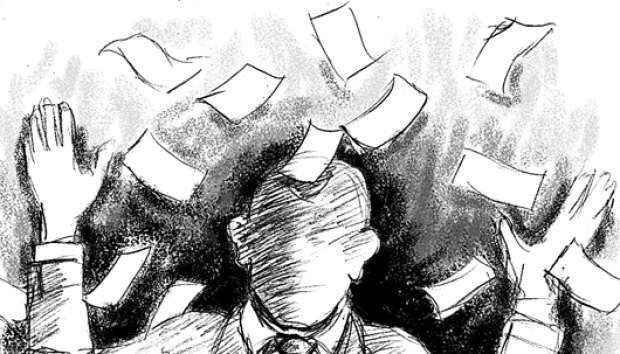Subsidizing Political Parties
Translator
Editor
Kamis, 1 Januari 1970 07:00 WIB

TEMPO.CO, Jakarta - The government has approved an increase in state funding for political parties. This policy is aimed at preventing corruption among politicians and improving the quality of democracy. But these noble aims will not be achieved if party finances are not monitored.
State subsidies for parties started at Rp108 per vote garnered in elections, but have now risen to Rp1,000 per vote. This means that from next year, the government will pay out Rp124.9 billion to the parties with seats in the House of Representatives. This total does not include funding for parties in the provinces and regencies, which comes from regional budgets.
This tenfold increase is unwise. It should have been implemented in stages, given the poor state of the nation's finances. And the provision of funds should not only be based on electoral votes but also be linked to efforts to reform the parties.
Research carried out by the International Institute for Democracy and Electoral Assistance reported in Funding of Political Parties and Election Campaigns: A Handbook on Political Finance (2014) shows that subsidies do not affect the quality of parties. They are still controlled by and dependent on a group of rich business people. Greedy politicians are still corrupt and take advantage of weak reporting of party finances to launder money.
To avoid this kind of problem, the government needs to tighten up the provision of subsidies by imposing additional conditions such as the seriousness of parties in collecting membership fees. In accordance with the Political Parties Law, the sources of party funds are state grants, membership fees, and donations. But no party has yet managed to properly collect fees from its own members. Therefore, the main source of party funding has remained donations, even from the proceedings of corruption. There have been repeated revelations of party managers and treasurers being involved in corruption of government projects.
The commitment of parties to preventing and eradicating corruption could also be made a condition, especially since many senior party officials give the impression of inconsistency. They demand large subsidies prevent their members becoming corrupt, but then attack the Corruption Eradication Commission-a body that has such a vital role in fighting this crime.
Furthermore, the government needs to push the parties to reform their financial reporting. To make it easier to monitor the subsidies, the government should provide assistance not as a complete package, but for separate activities, such as for the cost of office administration, membership recruitment or the formation of cadres. The law obliges parties to provide the results of an audit in their annual financial reports, but only a few do this because there are no sanctions for not doing so.
More stringent rules are needed to accompany this increase in state funding for parties. Audits could be carried out by the Supreme Audit Agency, rather than by independent auditors as at present. Embezzlement of state subsidies by senior party officials should be seen as corruption. The reporting of funds from the public also needs to be put in order. Currently, the financial reports from the parties that do follow the rules, have been strange, to put it mildly. Party income, mostly from donations, is far less than the estimates of spending on party activities.
Without transparency of party finances, state subsidies will do nothing to improve the quality of democracy or to reduce corruption.
Read the full story in this week’s edition of Tempo English Magazine




















